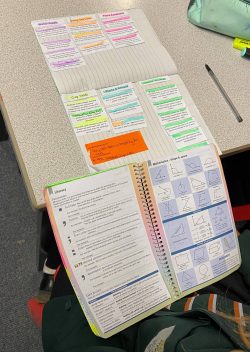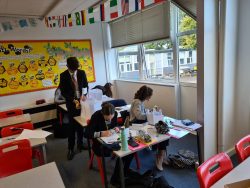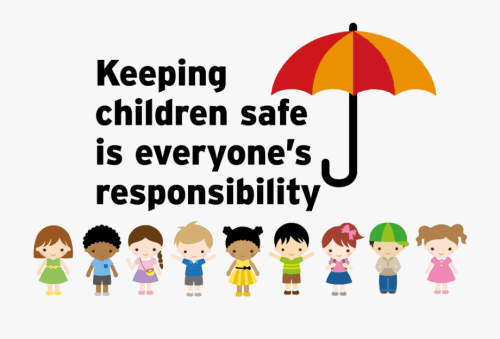A Little Perspective Goes a Long Way
As you are probably aware, I am a husband and father of three boys (aged 5, 7 and 10) and as much as I enjoy my job and take it seriously, it is my family that I love and care for...
Filter by Category
Filter by Author


























































































































































































As you are probably aware, I am a husband and father of three boys (aged 5, 7 and 10) and as much as I enjoy my job and take it seriously, it is my family that I love and care for...
Posted by Graeme Searle

It was reassuring this week, to visit BMS and see management of the COVID-19 Plan in action. The Senior Leadership Team meet, at least weekly, to review the effectiveness of...
Posted by Jeremy Turner

Let me introduce you to Dr Peter Lovatt, also nicknamed as ‘Dr Dance.’ After his time at school, he became a professional dancer and then combined his love for Dance...
Posted by Lauren Dolan

The Year 10s have been working hard during their dance theory lessons, learning and developing their knowledge on new dance styles under the Hip Hop umbrella. By watching and...
Posted by Eliz Noyan

Year 8 students have been studying the impact of climate change on the environment and in their geography lesson earlier this week they completed a lengthy card sort exercise to...
Posted by Jeremy Turner

The Year 13 food science and nutrition students have had a few decisions to make with regards to the course units because of covid. WJEC said they will disregard Year 12 and base...
Posted by Alison Hanbury

The word coding seems to be heard everywhere in today’s world, and for many it leads to two obvious questions: What is coding? Why is it important? Coding is a set of instructions...
Posted by Amita Vaghela

This week A Level Psychology students have been learning about experimental designs in investigations. To help them understand this concept the department created an interactive...
Posted by Sarah Dunsby

This year it has become clear how important local and global communities are. This is why in BMS we have created a whole scheme of work for humanities focused on communities. In...
Posted by Aaron Mitchell

Posted by Danielle Bowe
As you are probably aware, I am a husband and father of three boys (aged 5, 7 and 10) and as much as I enjoy my job and take it seriously, it is my family that I love and care for more than anything else. Therefore, I have to admit that over the past eight months I have been and continue to be very concerned about their health and welfare in relation to the pandemic.
On the 21st September I tested positive for COVID-19 and my first thought was about my family. I then entered 10 days of self isolation. Apart from losing my sense of taste and smell I felt fine, so it was very strange and hugely frustrating not to be able to go to work or even leave the house for 10 days. Even worse was that my family then had to self isolate for two weeks (4 days longer than I did). In my household we had returned to the original lockdown situation that the nation faced in March, where we were juggling kids homework with our jobs, fighting to use the computer, running out of printer ink, moaning about who was going to prepare lunch and dinner, load and unload the dishwasher and so on and so forth. A great worry of mine now is the possibility of having to self isolate again if any of my family members (or I) show symptoms and test positive again. I therefore have the greatest of sympathies for anyone who has had to self isolate or may have to do so in the future.
On the note of supporting my children with their homework, the online platform in use at their primary school is antiquated and cumbersome to say the least, so returning completed work to their teachers – if the teachers manage to set any in the first place – is time consuming and annoying. However, I know that there are a great deal of online platforms my children can use to practice their times tables, alphabet etc, they can read a book to improve their literacy, write a research piece on something they are interested in to refine their handwriting and whole host of other tasks that will allow them to progress academically. As long as they are not wasting entire days watching TV, playing on the computer or kicking a football around outside then I take confidence that they are moving (albeit a little more slowly) in the right direction.
My wife and I are both teachers and as a result we are interested in how our children’s school have modified their procedures in the current climate and this regularly crops up in conversation. Some of the specific points that we have discussed are as follows.
Do we as parents want (or need) specific numbers of cases that have occurred at the school, so we can keep a running total? If so why? What would we do with these figures? Would it change the messages we give to our own children each morning? We feel the answer to these questions is no. Of course we want to know if one of the children has been in close proximity to a positive case for longer than 15 minutes – which we will do via the track and trace procedures in place – but knowing anything that isn’t directly related to my children is unnecessary. We remind our boys to regularly wash and sanitise their hands throughout the day, to try not to touch their friends in class and at play times and to follow teacher instructions at all times. Knowing the total number of cases witnessed at the school won’t change these messages and unfortunately won’t provide us with additional information to keep my children any safer.
The corona virus by its very nature is extremely contagious, so as soon as one case has been identified, there is going to be a ‘snowball effect’ which leads to additional positive tests. The staff at my children’s school are doing what they can to try and reduce the snowball effect as far as possible, however, not every case highlighted will have originated within the school itself. My three boys play rugby every Sunday morning and therefore spend two hours running around with thirty other children. Perhaps in the future one of them may contract the virus at rugby and then unknowingly take it to school on Monday. For their general well-being, children should regularly participate in their hobbies. As a parent, I need to remind myself of this and realise that not every new case is therefore the fault of the school.
My niece and nephew (as part of their entire Year Group) were sent home from school to self isolate for fourteen days a few weeks ago because a child in their Year Group tested positive. My brother then asked why one of my children hadn’t been told to isolate after a pupil in his Year Group had contracted the virus (I only know this as I am friends with the boy’s father). I explained to my brother that there are three classes of thirty in my eldest boy’s Year Group and my son wasn’t in the same class. They are never in the same lessons and don’t play together at break time – meaning they haven’t been in close proximity at all. Why therefore would I want my child missing out on two weeks of socialising and learning? I explained that in my opinion, sending entire Year Groups home as soon as one child (or a small group of children) in that Year Group tests positive is the easier / lazy option and often disadvantages many children. We had to agree to disagree on this point.
In relation to this at BMS, the Pastoral Managers are working extremely hard to complete our track and trace procedures when required. The process has improved over time as a result of their continual evaluation of the systems in place and I am sure will continue to do so. The Pastoral Managers do not enjoy informing students (and parents) that they need to self isolate, but they do genuinely care about student safety and well-being. Therefore, please afford them the empathy and respect they deserve if you ever have to speak to them regarding self isolation.
Staggered starts to school in the morning are in operation at my children’s school and this causes logistical problems for my wife and I. With the letter ‘S’ (for Searle) being in the second half of the alphabet, we need to drop our children to school later than usual and then get to work on time. I don’t think there is any need for this. Children never congregate outside the school gate in the mornings, they walk through the gate and immediately find their friends – who are in the Year Group area / zone – meaning staggered starts aren’t necessary.
If a situation arises whereby I have to take my children into a shop or on public transport, I ensure they wear a face mask. Should I insist they wear a face mask to school each day? We have decided against doing this – although I know the school will be supportive if we change our minds. Without sitting on the fence, I think there is a slight scientific merit in wearing face coverings, however, I need to balance this with the comfort and well-being of my children. Wearing a face mask everyday for six hours is uncomfortable, isn’t conducive to learning (in terms of taking to classmates and teachers) and it doesn’t guarantee the virus won’t be contracted – young children are more likely to contract the virus by touching a surface and then not washing or sanitising their hands.
Year Group assemblies for my children still take place and I am very glad about this. They often come home and tell me what the assembly was about and explain something they learned during the presentation. It would therefore be a shame for them to miss out on this experience. I also know that assemblies take place in Year Group Bubbles and last less than 15 minutes – which according to government guidelines is ok.
On this note, I know there are large gaps in the science behind published government guidelines, there has been right from the start. Is there any such thing as a ‘bubble’? Why would the virus transmit to another person after 15 minutes and not 14 minutes? As a result, are the staff at my children’s school just ‘box ticking’ or are they actually concerned about my children? Regardless of the ambiguity, we all need to abide by guidelines in all aspects of life and government guidelines are often the best place to start. I am therefore confident that staff at the school are doing everything they need to do, and yes, they do care about my children.
When my boys have PE lessons, they need to arrive at school dressed in their PE kit, which is supposed to eradicate the need to change with other students. At the start I thought this was a sensible idea. After six weeks however, my opinion has changed. When it’s cold and wet, long trousers, jumpers and coats need to be worn to school and these things (along with school bags) need to be removed and left somewhere while the PE lesson is taking place. A changing room is as good a place as anywhere for belongings to be left, particularly when there are the same number of pupils in the changing room as there are in all classrooms across the school during lesson time. Two weeks ago my 7 year old came home covered in mud with wet socks, shoes and jogging bottoms as he had played football on the field during PE. When I asked him which lesson of the day his PE lesson had taken place, he replied that it was lesson 2 – which means he spent the next five hours in wet and muddy clothes. Had he worn his normal school uniform to school and changed into his PE kit, he would have had a clean and dry set of clothes to change into and would have been more comfortable for the rest of the day.
Another mechanism in place is one in which all lessons take place in the same classroom for the pupils and the teacher is the person who moves around. I understand the rationale, that less human traffic leads to less close proximity contact. Even though this is quite usual in primary schools, for certain lessons such as art and ICT, pupils are taken to specialist classrooms to utilise the relevant equipment. My 7 year old loves art and is always drawing, painting and making models at home and my 5 year old enjoys using computers. Neither child has enjoyed these lessons (usually one of their favourite lessons) at school this year due to not moving to other classrooms and not using the necessary equipment. As a result, I have witnessed a visible drop in the amount of art my 7 year old does at home – which is a huge shame.
As you can see, some of the mechanisms in place at my children’s primary school I agree with, but several I disagree with and wish the staff would reconsider. Do my wife or I phone or email the school to either complain, ask them to reconsider or provide them with an alternative? No. Staff at every school in the country have more to do now than ever before. They physically haven’t got time to reply to every email or phone call as there aren’t enough hours in the day. Also, every minute a teacher or senior leader spends dealing with a COVID-19 related issue from a parent is time that is not spent on my children’s education and well-being. In addition, I have had faith in the primary school for the past five years and selected it for my children to attend. Therefore, it is unfair, unreasonable and silly not to have faith in them now. I know the staff sincerely have my children’s best interests at heart, so as a parent, I need to exercise a little common sense and allow them to get on with their job. The main beneficiaries of which will be my children.

We have exciting job opportunities for suitably experienced individuals at our great school. If you would like to find out more please click on the links below. HR Manager for the...

We would like to take this opportunity to signpost avenues of support should you have an urgent safeguarding concern. These are particularly important to be aware of if you have a...